Rubio Calls On Biden Not To Make Deals With Iran, Venezuela
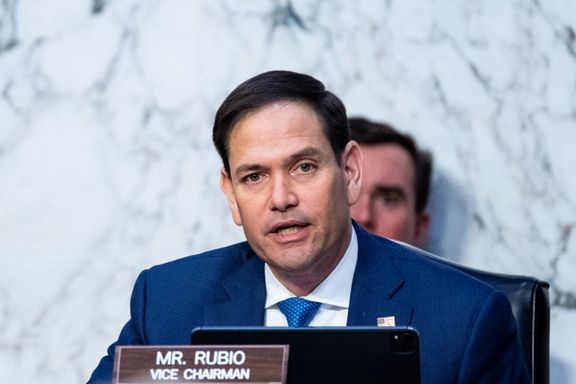
Florida’s Republican Senator Marco Rubio has urged President Joe Boden not to pursue deals with anti-American and authoritarian regimes in Venezuela and Iran.

Florida’s Republican Senator Marco Rubio has urged President Joe Boden not to pursue deals with anti-American and authoritarian regimes in Venezuela and Iran.
In a letter on Friday, Rubio called on the president to support energy projects in democratic nations in the Western Hemisphere, such as in Guyana, a democratic nation in South America.
Rubio criticized the Biden Administration for choosing not to lend to a project in Guyana, saying it would have helped address rising energy prices in the United States by supporting an expansion of Guyana’s capacity to produce and export more oil.
“Instead of supporting common sense projects that would strengthen our relationship with our allies and help the energy crisis at home, your administration is working behind closed doors to lift sanctions on the fossil fuel industries controlled by the Maduro regime in Venezuela and the Ayatollahs in Iran”, he said.
“I urge you, before seeking to convince bloodthirsty dictators to enter into misguided deals, explore supporting projects in democratic countries that actually want to work closer with us. Doing so will require no moral compromise on our part, while still reaping benefits for the American people”, the letter concluded.
Republicans and some Democrats have been criticizing the Biden team for their drawn-out talks with Iran to restore the 2015 nuclear agreement, JCPOA, arguing that it is an expiring agreement for which the US has to lift sanctions imposed on an anti-American regime.
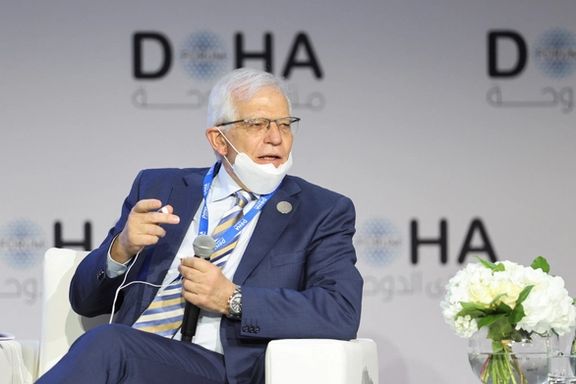
Speaking at the Doha Forum international conference Saturday, Josep Borrell, the European Union (EU) foreign policy chief, said Iran and world powers were “very close” to reviving the 2015 nuclear deal.
Borrell reportedly discussed with Qatari Foreign Minister Mohammed bin Abdulrahman bin Jassim Al-Thani the humanitarian impact of Russia's invasion of Ukraine, which has sent the cost of food items spiraling across the Middle East and North Africa, whereone in three peoplewere short of food in 2020.
Borrell said he hoped a successful conclusion to 11-month talks in Vienna aimed at reviving the 2015 nuclear deal, the JCPOA (Joint Comprehensive Plan of Action) was possible as an “as important element of wider stability and security.”
Enrique Mora, the senior EU official chairing the Vienna talks, tweeted Friday that he would travel to Tehran Saturday to meet Ali Bagheri-Kani, lead Iranian negotiator in the Vienna talks. “Working on closing the remaining gaps…Much is at stake,” Mora wrote.
Speculation over delays in the Vienna talks has focused on Russia’s requests that any sanctions over Ukraine not affect Moscow's role in JCPOA and its trade relations with Iran and reported US-Iran deadlock over lifting a ‘foreign terrorist organization’ designation attached to Iran’s Revolutionary Guards by former president Donald Trump after leaving the JCPOA in 2018 and imposing ‘maximum pressure’ sanctions.

Iran has denied a report about an alleged secret offer to help Russia evade Western sanctions in exchange for support in achieving a nuclear deal with the West.
Dismissing a March 23 report by the UK newspaper The Telegraph, an informed source with Iran’s Foreign Ministry said on Friday, “The claim by the Daily Telegraph that Iran and Russia have reached a secret agreement on the JCPOA and [Western] sanctions [on Russia] is merely an instance of news fabrication”.
The source, quoted by Iran's government-controlled media, added that such reports are made by Western security circles as part of their psychological warfare. It is worth noting that Iran's belated denial is not official.
On March 23, The Telegraph cited security sources about Iran’s secret offer to help Russia evade the impact of Western sanctions in return for getting “Moscow’s backing for a new nuclear deal”.
Diplomatic efforts in Vienna to revive the 2015 Iran nuclear deal, officially known as the Joint Comprehensive Plan of Action (JCPOA), broke up earlier this month after Russia demanded guarantees that any future business it conducts with Iran be exempt from Western sanctions imposed after the invasion of Ukraine.
It seems the Biden Administration has agreed with a Russian demand, which besides facilitating the restoration of the JCPOA, would involve lucrative deals for Moscow to expand Tehran’s civilian nuclear program. This would include the expansion of the Bushehr power plant with two additional nuclear reactors.
Russia announced on March 15, ten days after demanding the exemption that the Biden administration had agreed to waive Ukraine sanctions, noting that “Additions were made to the text of the future agreement on JCPOA restoration to ensure that all the JCPOA-related projects, especially with Russian participation, as well as Bushehr Nuclear Power Plant, are protected from negative impact of anti-Russian restrictions by US and EU”.
Still expressing optimism over the Vienna nuclear talks on Thursday, the Iranian foreign minister reiterated that Tehran would not surrender its "redlines", understood as the demand to remove the Revolutionary Guard from the US list of terrorist organizations.
Iran is believed to have already established a clandestine banking and finance system to handle tens of billions of dollars in annual trade banned under US-led sanctions while there are also reports that Tehran and Moscow are in talks over the possible recognition of the Russian payment system MIR.
The Telegraph article claimed security officials believe Iran has offered to use its sanctions-evading structure to help Russia sell its oil on international markets once the nuclear deal is signed, and sanctions have been lifted against Tehran.
“Russia is actively looking for ways to evade sanctions, and Iran has offered to help,” said a senior Western security official. “In return, Iran wants Russia to make sure the new nuclear deal is agreed so that sanctions are lifted against Tehran.”
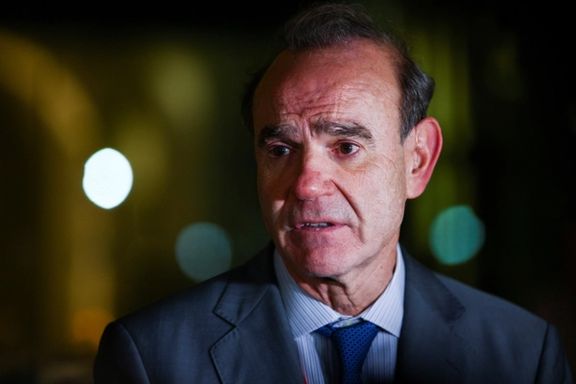
The European Union coordinator for Iran nuclear talks, Enrique Mora, will travel to Tehran on Saturday to discuss unresolved issues, he tweeted late Friday.
“Travelling to Tehran tomorrow to meet Bagheri Kani. Working on closing the remaining gaps in the Vienna talks on the JCPOA. We must conclude this negotiation. Much is at stake,” Mora said.
The nuclear talks that started almost one year ago in Vienna ended inconclusively earlier in March, after Russia demanded exemption from Ukraine sanctions in its dealings with Iran. However, there are still unresolved issues between Tehran and Washington.
Iran is reportedly demanding that the United States remove the Revolutionary Guard, IRGC, from its terrorism list and the Biden Administration appears hesitant.
The prospect of such a move has galvanized opposition among US lawmakers, especially Republicans, who were skeptical or opposed to the revival of the 2015 nuclear agreement, JCPOA. Former president Donald Trump withdrew from the agreement arguing that it will not stop Iran from acquiring nuclear weapons.
US National Security advisor Jake Sullivan travelling in Europe said on Friday that if diplomacy with Iran fails, Washington is ready to increase pressure on Tehran in coordination with its European allies.
As the current stalemate continues, Iran-backed Houthi forces in Yemen launched drone and missile attacks against oil installations in Saudi Arabia on Friday, causing damage.
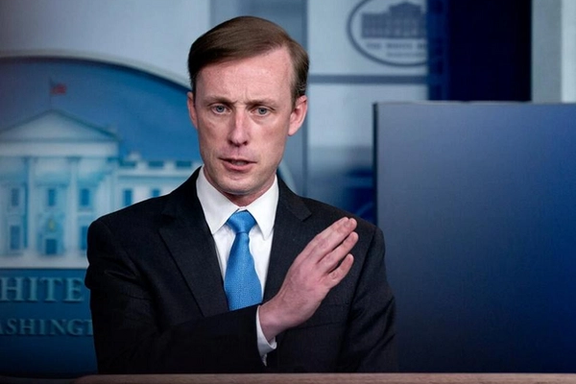
The United States will work with allies to increase pressure on Iran if diplomacy fails, White House National Security Adviser Jake Sullivan said on Friday.
The talks were close to an agreement until Russia made last-minute demands of the United States, insisting that sanctions imposed on Moscow over its invasion of Ukraine would not hurt its trade with Iran.
US officials have become more cautious lately in their assessment of efforts to revive the 2015 nuclear accord between Iran and world powers, which would curb Tehran's nuclear program in exchange for lifting tough sanctions on Iran's economy.
Substantial progress has been made in resolving several issues necessary for Washington to come back to the deal "on a compliance-for-compliance basis," Sullivan told reporters aboard Air Force One en route to Poland with President Joe Biden.
"There still are issues left. There still is work to be done," he added. "We are still seeking a diplomatic outcome here that puts Iran's nuclear program back in a box. Of course, if diplomacy doesn't succeed, then we will work very closely with our international partners to increase the pressure on Iran."
Iran is reportedly insisting that the US should lift a terror designation imposed on its Revolutionary Guard. The Biden Administration apparently has considered the demand, which has let to domestic criticism, particularly by Republicans.
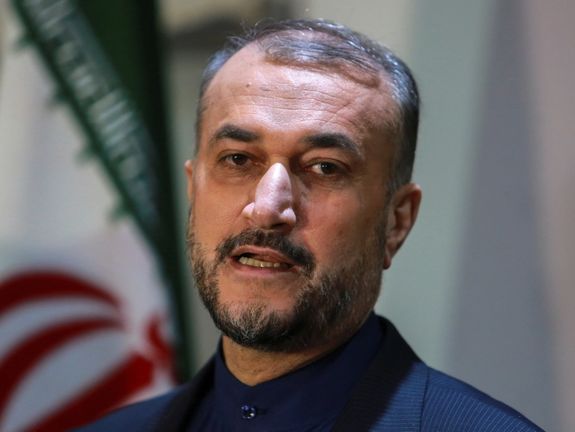
Still expressing optimism over the Vienna nuclear talks on Thursday, the Iranian foreign minister has reiterated that Tehran would not surrender its "redlines".
At a meeting with the Lebanese Parliament Speaker Nabih Berri in Beirut Thursday evening, Hossein Amir-Abdollahian said Iran is serious about achieving a “good, lasting deal” in the negotiations.
He added that a prolongation of the process was not acceptable to Iran and that Iran would not cross its own red lines but did not elaborate on what Iran's redlines are, but reports in the past two weeks indicate this is related to Iran's demand that the US should remove the Revolutionary Guards (IRGC) from its list of Foreign Terrorist Organization (FTO).
“We are optimistic and at the same time serious about the outcome of the Vienna talks. In our view, the [possible] agreement should be such that the removal of [US] sanctions is done maximally,” he said at another meeting in Beirut with Lebanese Prime Minister Najib Makati.
Prospects of delisting the IRGC have raised many objections in the US and the tone in Washington is no longer as optimistic as before.
Austrian journalist Stephanie Liechtenstein in a tweet Thursday said her sources who ten days ago seemed rather confident that a deal could be struck to restore the JCPOA now "sound increasingly pessimistic." "This is yet again another extraordinary turn of events, especially if you think just how close they are," she said.
The Trump administration listed the IRGC as a terrorist organization as part of his ‘maximum pressure’ after he withdrew from the JCPOA in 2018.
Some pundits maintain that listing of the IRGC as a foreign terrorist organization is only symbolical because the title Specially Designated Global Terrorists (SDGT) was merely added to a host of other designations of the IRGC without introducing newer or more effective sanctions. The IRGC and all individuals and entities related to it, they argue, were already sanctioned under executive orders 13382, 13553, 13606, 13224 between 2007 and 2017 as well as CISADA and other legislations in connection with human rights, missile programs, and terrorist activities.
Russia's role in a restored JCPOA has also become a matter of contention and possibly an obstacle to a quicker conclusion of the talks.
It seems The Biden Administration has agreed with a Russian demand to be exempted from Ukraine sanctions in its nuclear cooperation with Iran, which besides facilitating the restoration of the JCPOA would involve lucrative deals to expand Tehran’s civilian reactor.
Biden Administration officials speak about the Russian role only in terms of its traditional mediation to take enriched uranium out of Iran, but what Moscow has demanded goes further than that
The Telegraph, quoting Western security sources, reported on Wednesday that Iran has made a secret deal with Russia to help it evade Western sanctions related to Ukraine, in exchange for Moscow’s help to conclude a nuclear deal with the West, which can free up tens of billions of dollars in frozen funds and trade opportunities for its beleaguered economy.
But there is opposition even from some Democrats. "I don’t think Russia is at the table in a legitimate or honest way. I think they are looking at ways to get around the sanctions," Democrat Senator Kirsten Gillibrand told Fox News Thursday. "I think we have to be very careful in not negotiating against ourselves, especially with what Russia is doing against Ukraine."